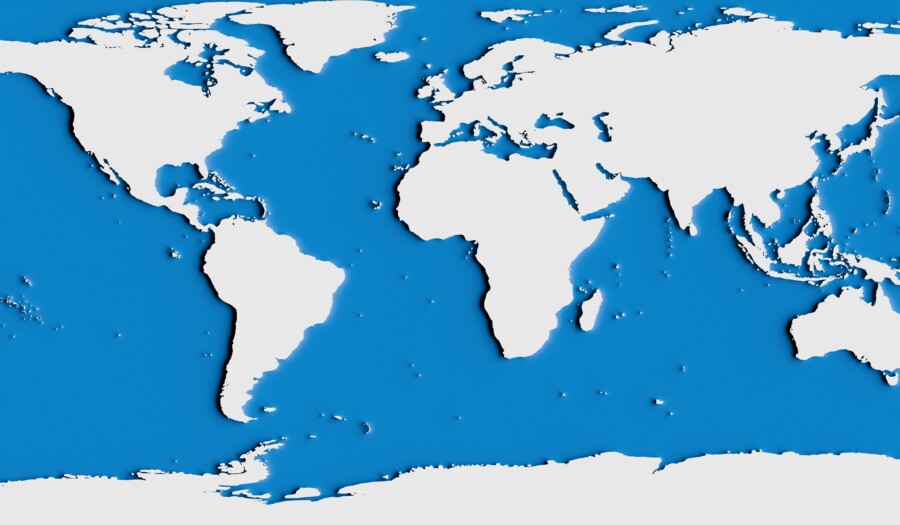The Ethics of State Responses to Refugees, by Bradley Hillier-Smith (New York: Routledge, 2025), 286 pp., cloth $170, eBook $48.44.
Refugees fleeing persecution and serious threats to their lives within their state of origin endure severe harm and deprivation. Yet upon fleeing, all too often, they find little refuge. They are forced into perilous refugee camps, detained in conditions resembling imprisonment, or subjected to border violence. So, what obligations do we have to refugees? And how should states respond to them?
A rich body of philosophical literature has long sought to address such questions. The Ethics of State Responses to Refugees by Bradley Hillier-Smith makes a significant contribution to this literature by offering an original and carefully thought-out account of states’ obligations to refugees, one that is attentive to the overlooked, morally significant features of their situation. In focusing on these features, this book develops a rigorous normative understanding of states’ negative and positive duties toward refugees that, in turn, establishes what an ethical response to refugees should be. As a work of political theory and applied ethics, there is little commentary on the Refugee Convention and refugee law more generally. But because of this, policy and law makers should not shy away from reading this book. Indeed, despite international human rights declarations and refugee treaties, refugees are still displaced into harmful conditions. The book offers invaluable insight for anyone aiming to understand and formulate a just response to the plight of refugees.
Part 1 of the book begins by taking aim at a dominant approach in political and moral philosophy to understanding what obligations states have toward refugees; namely, “A Duty of Rescue Approach.” According to this approach, if states in the Global North can help refugees at little cost—by offering aid, asylum, or resettlement, for instance—then they have a moral obligation to do so. Yet in primarily viewing states as “innocent bystanders” with obligations to help refugees during their displacement, the Duty of Rescue Approach has little to say about the harmful policies and practices states adopt in response to refugees—policies and practices that are often instruments of harm. By adopting “certain practices in response to refugees including border violence, detention, encampment and containment” (p. 37), Hillier-Smith argues that Northern states neglect their strong negative duties. Simply put: “Negative duties are moral duties not to . . . harm or violate the rights of others” (p. 10). To take just one example, refugees detained in Australia’s offshore detention centers on Manus Island and Nauru live in squalid prison-like conditions, and were subjected to violence and abuse, resulting in serious mental and physical health conditions, and in some cases death. By employing certain policies and engaging in such practices, states are thus not innocent bystanders but are instead doing harm to refugees (pp. 43–48).
However, causing harm to others is not always wrong. For instance, “Many agree it is permissible to harm others in certain cases such as in self-defence” (p. 60). Therefore, merely showing that certain practices are harmful does not prove they are unjust. Some argue that states might be justified in harming refugees if doing so is necessary to control borders, protect national security, uphold sovereignty, or preserve social order. In chapter 3, Hillier-Smith explores potential justifications for current state practices in response to refugees, such as maintaining a state’s right to self-determination and freedom of association, and more common justifications often given in public discourse that states have security-based, political, economic, and cultural interests in controlling borders. Yet when we consider the significant economic, social, and cultural contributions refugees provide receiving states, and weigh such contributions against the cost of current practices used against refugees—for instance, Australia’s A$10 billion offshore detention regime—along with the fact that such resources could feasibly be redirected to fund practices that assist refugees, such harmful practices seem unjustified and unjustifiable. He concludes that state “practices, which cause unnecessary and disproportionate harm to innocents are . . . unjustifiable” and are not permissible “based on their right to control borders” (p. 90). Furthermore, these practices, he argues, constitute an injustice against refugees.
Part 1 closes with an analysis of how we ought to understand the nature of this injustice. Hillier-Smith carefully critiques Serena Parekh’s influential argument that these injustices are structural injustices—the unintended consequences of structural processes—and effectively shows that the harmful consequences of confining refugees in camps and denying them refuge are not merely accidental outcomes of broader systemic practices. Instead, these harmful consequences are often the direct result of policies.
Part 2 of the book focuses on what positive duties states have toward refugees. Simply put, positive duties are active “duties to help others” (p. 11). While states have negative duties to not violate refugees’ rights through border violence, detention, encampment, and containment, it is widely accepted by theorists that states also hold positive duties to assist refugees, in some capacity, by offering them asylum or safe resettlement, for instance. Yet, there is widespread disagreement among theorists over the strength of these positive duties. Hillier-Smith suggests that the moral importance of refugees’ suffering due to human rights violations is largely overlooked by theorists. This might be in part due to theorists taking the “state” as their theoretical starting point and theorizing “what obligations such a state would have if faced with the presence of refugees seeking safety” (p. 128). By focusing instead on the situation of refugees themselves, Hillier-Smith argues that we are better positioned to evaluate states’ positive duties toward refugees, the normative weight of these duties, and why these duties to refugees are so necessary.
In the first chapter of part 2 (chapter 5), the author documents the dire situation of refugees in Syria, Ukraine, Afghanistan, Venezuela, South Sudan, and Myanmar, revealing to us—or perhaps giving us a much needed reminder—that refugees have been “subjected to and are forced to flee severe human rights violations in their states of origin” (p. 132) and are often displaced into conditions where they lack protection of their human rights and their “Convention rights” and are subjected to further rights violations (p. 170). This fact is morally significant. Hillier-Smith rightfully recognizes that other authors acknowledge this. Yet his claim is rather that there is insufficient analysis of the extent of refugees’ situations in political philosophy and how this ought to make a difference in how we view states’ positive duties toward refugees. Proponents of what the author calls the “Moral Equivalence Thesis” argue that the physical suffering that results from a human rights violation is not inherently worse than the equal physical suffering caused by accident or nature. What matters is the level of physical suffering itself, and thus when such types of suffering are considered equal, states have no stronger duties to aid one over the other. Hillier-Smith gives a convincing argument to the contrary. He argues that “human rights violations themselves constitute significant harms to the victim, aside from any physical suffering that results” (p. 141), as the human rights violations refugees experience involve violations of one’s personal autonomy, dignity, and moral worth. Further, such violations compound existing harms that give rise to weightier positive “duties to alleviate their suffering and duties of justice to prevent and counteract the injustice of rights violations by securing their human rights” (p. 141). While Hillier-Smith acknowledges that some rights violations are more serious than others, commentary on how we ought to compare such violations is absent. But this is not of concern, as he is primarily concerned with the severe violations of one’s personal autonomy, dignity, and moral worth that all refugees experience and defending what he calls the “Moral Difference Thesis.” That is, “duties to alleviate suffering and duties of justice combine to give rise to . . . particularly strong duties to those suffering as a result of human rights violations, such as contemporary refugees” (p. 222).
In conclusion, states have compulsory negative duties to cease practices and policies that unjustifiably harm and violate the rights of refugees, as well as weighty positive duties to protect and aid them. What is the content of such weighty positive duties, however? What, in practice, do these duties look like? Less is said to this extent. Briefly, in the concluding chapter, the author suggests that states ought to increase the amount of refugee resettlement, increase funding for programs that support refugees in communities closer to their state of origin, and provide safe and regular routes for refugees to reach refuge.
Some readers may consider Hillier-Smith’s account unrealistic or not politically feasible. However, even if it is not, in a world where state responses to refugees cause significant harm, we must not lose sight of what an ethical response to refugees should be, nor allow this to be clouded by the practically possible. A note of hope is given in the postscript. Drawing on the recent responses to Ukrainian refugees, we see that such an ethical response is not just possible but has been achieved in certain respects.
It is rare for an author to make such a substantial contribution to a well-researched field in philosophy. The Ethics of State Responses to Refugees offers a novel, thoughtful, and persuasive ethical analysis of how states should respond to refugees. This book is an important, timely addition to the philosophical literature on states’ obligations to refugees, and to ongoing political debates over the rights and treatment of refugees.
—Harrison Munday
Harrison Munday is a PhD candidate in social and political philosophy at the University of New England. His research focuses on states’ reparative obligations to persons displaced by climactic events. He received his BA with honors in philosophy from the Australian National University.
To access a PDF of this review, visit Cambridge University Press.
More in this issue

Summer 2025 (39.2) • Review Essay
The Politics and Morality of Transnational Corporate Accountability

Summer 2025 (39.2) • Essay
The Diffusion of Global Power and the Decline of Global Governance
This essay makes the case that the changing global distribution of state power has led to a decline in global governance: that is, the attempt ...


